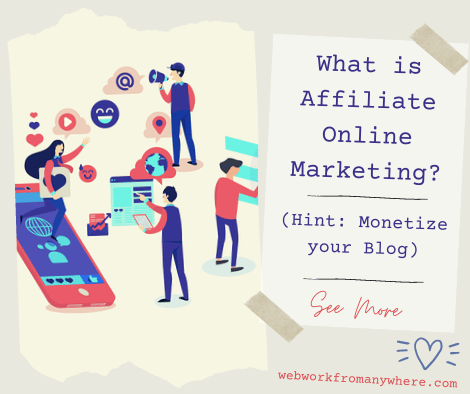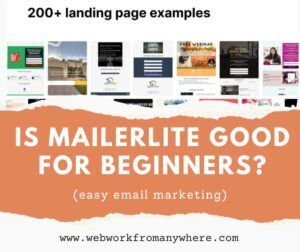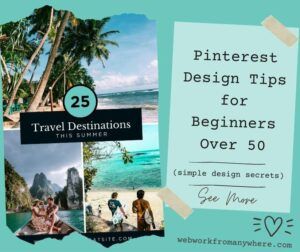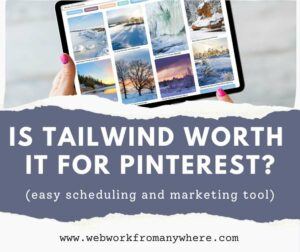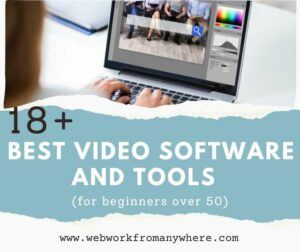Have you ever clicked a “see more” link and ended up buying something on Amazon? That’s affiliate marketing in action- where content creators earn a commission for recommending products. It’s a smart, low-cost way to build an online business from anywhere. Let’s break down how it works and how you can succeed…
- 1. What is Affiliate Online Marketing – in a nutshell
- 2. Here’s Why I Like Affiliate Online Marketing
- 3. How do I Start?
- 4. Affiliate Marketing Starter Checklist
- 5. How do I choose a Niche?
- 7. How Can I Make Money?
- 8. Writing Reviews
- 9. How Do I Get Paid?
- 10. What do I Need for Affiliate Marketing?
- 11. Top Tips to Succeed in Affiliate Online Marketing
1. What is Affiliate Online Marketing – in a nutshell
Affiliate marketing is a business model where you earn a commission by promoting someone else’s product or service. You create helpful content – like a blog post, video, or social media update – and include a special link. If someone clicks that link and makes a purchase, you get paid. Affiliates range from big names like Tripadvisor to small niche blogs run by passionate hobbyists (like this one!)
2. Here’s Why I Like Affiliate Online Marketing
- It’s easy to get started and fine if you have limited time.
- It’s low-cost to start and low risk compared to other business models.
- Unlike selling products online, you don’t have to deal with a mountain of products and stock taking over your house!
- You can create content and build an audience, e.g. by writing, making videos, creating podcasts, and posting on social media (or all of the above).
- You don’t have to be a 25-year-old tech whizz. Affiliate marketing is great for any age, any situation – for the over 50s, you might be ready to retire, already retired, looking to replace a stressful job, or want your own business (with no boss!)
- You don’t need much money to start and you can work when you want (from home or a tropical beach!) so long as you have your laptop and the internet.
3. How do I Start?
The best way to start affiliate marketing is by choosing a niche – a specific topic you’re passionate about – and creating content around it.
A niche isn’t a product; it’s a theme that helps you solve real problems for a specific group of people. You can share your affiliate links through a blog, YouTube channel, Instagram posts, Facebook groups, or even a podcast.
For example, “Essential Tips for New Mountain Bikers” targets beginners and lets you share helpful advice, gear reviews, and affiliate links that match your content.
Don’t worry if you’re not a pro writer – just speak in your own voice, keep it casual, and focus on being genuinely helpful.
So a niche is a topic, not a product and you’ll be helping solve specific problems for a specific group (your audience).
4. Affiliate Marketing Starter Checklist
✔ Choose your niche – Focus on a topic you love and know well
✔ Know your audience – Who are you helping? Beginners? Travelers? Gardeners?
✔ Pick your platform – Blog, YouTube, Instagram, Facebook, podcast—start where you’re most comfortable
✔ Create helpful content – Share tips, reviews, tutorials, how-to videos, and personal stories
✔ Join affiliate programs – Amazon Associates, FlexOffers, AWIN, or niche-specific options
✔ Add your affiliate links – Naturally weave them into your content
✔ Be authentic – Use your own voice and recommend only what you truly believe in
✔ Stay consistent – Post regularly and build trust over time
5. How do I choose a Niche?
Think of a niche as a topic where people have specific problems – and you offer helpful solutions. That’s the heart of affiliate marketing: being genuinely useful. You don’t need to be an expert, just curious and willing to learn.
Start with a subject you enjoy, know something about, or want to explore more deeply. Then ask: What questions are people asking in this space? What do they need help with? That’s where your niche lives.
Do a little research to see if there’s demand for products or services in that area. Check if affiliate programs exist—Amazon, Flexoffers, or niche-specific sites are great places to start.
Narrowing your focus helps you stand out. Instead of “gardening,” try “Vegetable Gardening in Pots.” Instead of “photography,” go for “Wildlife Photography Tips for Beginners.” These are specific, helpful, and easier to rank for.
Your niche should be something you’re happy to write, talk, or post about for months. You’re building trust and attracting an audience over time—so choose something that won’t bore you after a few weeks.
a. Here are a few niche ideas to spark inspiration:
- Vegan Desserts – solving the “what do I eat now?” dilemma
- Camping Tips for Beginners – helping people feel confident outdoors
- Home Security for Seniors – practical advice with product reviews
- Herbal Remedies for Stress – gentle wellness support
b. Tools to Help You Find a Niche
- Google Trends – See what’s rising in popularity and whether it’s seasonal
- Jaaxy – Discover hot niche topics across Amazon, Google, and social platforms
- Wordstream – Use their free keyword niche finder (sign-up required)
- Writesonic AI – Great for generating blog ideas and content angles
- AlsoAsked – gives you the questions people are asking about the topic
I’ve put a list of 20 successful niches for you at the end of this post…
6. How Do I Succeed?
Success in affiliate marketing comes from creating helpful content that solves real problems. Whether you write blog posts, film YouTube videos, or share tips on Instagram or Facebook, your goal is to build trust and become a go-to voice in your niche.
People follow creators who make their lives easier – so focus on being useful, honest, and consistent. Over time, your audience will see you as an authority, and your affiliate recommendations will feel natural and valuable.
a. Content Ideas That Work Across Platforms:
- Personal testimonials – Share your own experience with a product or solution
- Top 10 or 20 lists – e.g. Top 20 Easiest Vegetables to Grow in Pots
- Best-of lists – e.g. Best Hiking Shoes for Flat Feet
- How-to or explainer content – e.g. How to Heal Golfer’s Elbow Quickly
- Interviews – Chat with someone who uses or makes the product
- Product reviews – Honest, detailed, and beginner-friendly
- Answer common questions – e.g., What’s the best camera lens for nature photography?
These formats work beautifully on blogs, YouTube, Instagram Reels, TikTok, and even Pinterest pins. Just choose the platform that feels most natural to you.
b. Use Long-Tail Keywords
Notice how those content ideas use phrases – not just single words. These are called long-tail keywords, and they’re gold for driving free (organic) traffic. People don’t search for “shoes” – they search for “best shoes for Achilles tendonitis.” That’s the kind of keyword that helps your content show up on Google, Bing, Pinterest, YouTube, Instagram, etc.
So instead of competing with big brands, you’re helping real people with specific needs, and that’s where affiliate success lives
c. AI SEO
AI SEO is becoming just as important as traditional SEO. More people are skipping Google and going straight to AI tools like Copilot, ChatGPT, or Perplexity to get their answers. That means your content needs to be structured in a way that AI can understand and recommend it. Focus on creating:
- FAQs that directly answer common questions
- Comparison content (e.g., Product A vs Product B)
- Helpful, well-structured answers on platforms like Reddit and Quora
By showing up where people are already asking questions – and making your content AI-friendly – you’ll stay ahead of the curve.
See More Affiliate Marketing Help
- Guide to Affiliate Marketing for Beginners
- Best Resources for Affiliate Marketing Beginners
- How to Choose a Niche (Without Overthinking It)
7. How Can I Make Money?
Affiliate marketing works when you create helpful content – whether it’s a blog post, YouTube video, Instagram Reel, Facebook update, or podcast episode – and include affiliate links to products or services you genuinely recommend. When someone clicks your link and makes a purchase, you earn a commission.
As you consistently share valuable content, your audience will grow. You might start with a blog, but you can also reach people through Pinterest, Quora, Reddit, YouTube, or even podcasting. The key is showing up regularly and solving real problems for your audience.
Here’s a simple formula:
If you publish 2–3 high-quality pieces of content each week (around 1,500 words or 5–10 minutes of video), you could build toward a full-time income in 12–18 months.
But remember – this isn’t a get-rich-quick scheme. It’s more like planting a garden: steady effort, nurturing your audience, and letting trust grow over time.
Success also depends on knowing your audience well. What are they struggling with? What questions are they asking? The better you understand their needs, the more likely they are to click, buy, and come back for more.
And don’t forget: you can promote your content for free by helping people on platforms like Pinterest, Facebook Groups, Instagram, Quora, and Reddit. Even podcast directories are powerful ways to get your message out there – without spending a cent.
What is Affiliate Online Marketing? Well, this isn’t a get-rich-quick scheme.
Think of it as more of a marathon than a sprint.
8. Writing Reviews
Product reviews are a powerful way to earn affiliate income – and they work across all platforms, from blogs and YouTube to Instagram and podcasts. They’re the bread and butter for many affiliates because people love real opinions before they buy
But here’s the key: don’t just create glowing reviews. If a product doesn’t live up to the hype or has poor online feedback, be honest. Your audience will appreciate your transparency, and it builds long-term trust.
Still include the affiliate link (some people may want to try it anyway), but recommend a better alternative if you have one. That way, you’re helping your audience make informed choices while still earning commissions.
Once your content is ready, you can add affiliate links in different formats:
- Text links in your blog or video description
- Banners on your website or sidebar
- Widgets that showcase products visually
- Coupons or promo codes for added value
Whether you’re writing, filming, or posting, the goal is the same: be helpful, be honest, and make it easy for your audience to take action.
9. How Do I Get Paid?
Affiliate marketing offers several ways to earn income, and the good news is, you don’t need to be tech-savvy or have a huge following to start. Here are the most common payment models today:
Cost Per Sale (CPS)
You earn a commission when someone clicks your affiliate link and makes a purchase. This is the most popular model and works well across blogs, YouTube, Instagram, and even podcasts. Think Amazon Associates, Etsy, or niche product programs.
Cost Per Action (CPA)
You get paid when someone takes a specific action like signing up for a free trial, downloading an ebook, or registering for a webinar. These actions don’t require a purchase, and payouts can range from $1 to $10 or more, depending on the offer.
Recurring Commissions
Some affiliate programs (like web hosting, software, or membership sites) pay you monthly as long as your referral stays subscribed. This creates a steady stream of passive income, which is perfect for long-term growth.
Personalized Storefronts & Co-Selling
Platforms like Amazon Influencer Stores let you create curated product pages that reflect your brand. You earn commissions when people shop your recommendations, which is great for creators who want a visual, shoppable experience.
Sell Your Own Digital Products
Want full control? Create your own ebook, guide, or mini-course and sell it alongside your affiliate content. It builds trust, adds value, and gives you another income stream.
10. What do I Need for Affiliate Marketing?
Affiliate marketing is one of the most flexible and beginner-friendly ways to earn online. You don’t need to be tech-savvy or have a huge following to start. Whether you’re blogging, posting on Instagram, filming YouTube videos, or podcasting from your kitchen table, here’s what you’ll need to get going:
a. Choose Your Platform
You can start with a niche blog using WordPress, which gives you full control over your layout, branding, and content. It may feel a bit technical at first, but the block editor makes it easier than ever to create a professional-looking site—even if you’ve never built one before.
Prefer video or social media? You can also build your affiliate business on YouTube, Instagram, Facebook, or Pinterest. The key is choosing the platform that feels most natural to you and your audience.
b. Pick a Theme and Hosting Service
If you’re starting with a blog, you’ll need a website theme and a hosting provider—these are the foundation of your online home.
- I recommend the GeneratePress theme—the free version is fast, clean, and easy to customize, even if you’re new to tech. It’s lightweight and works beautifully with WordPress.
- For hosting, Rocket.net stands out for its speed, security, and simplicity. It’s built for performance, which means your site loads quickly and stays safe—without needing to fiddle with complicated settings. Perfect for beginners who want professional results without the overwhelm.
If you’d prefer an all-in-one experience with training and support, I use Wealthy Affiliate, which bundles hosting, education, and community tools. This is a great option if you want step-by-step guidance.
c. Explore Other Website Builders
If WordPress feels overwhelming, there are simpler options like Wix, Shopify (great for online shops), and Blogger. These platforms offer drag-and-drop design and built-in hosting, though they’re less customizable than WordPress.
d. Create a Lead Capture Funnel
To grow your audience, offer something valuable for free. This is called a lead magnet, like an ebook, checklist, or trial. This encourages visitors to sign up with their email, so you can stay in touch and share future content and affiliate offers.
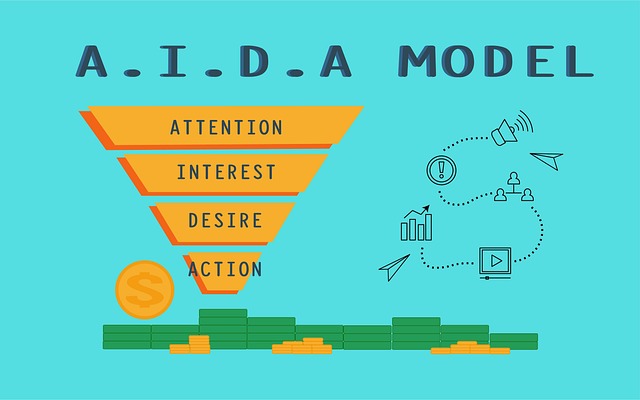
This process is called a funnel, and it follows the AIDA model:
Attention → Interest → Desire → Action.
Tools like Systeme.io make it easy to build landing pages and automate your funnel – even if you’re brand new to marketing.
e. Use an Email Marketing Service
Email is still one of the most powerful tools in affiliate marketing. Services like MailerLite, AWeber, and ActiveCampaign help you build a list, send newsletters, share affiliate links, and keep your audience engaged. You don’t need fancy tech – just a helpful voice and consistency.
f. Promote Your Content
You don’t need to spend money on ads to get noticed. Here are free ideas…
- Answer questions on Quora and link to your blog or video
- Share tips and tutorials on YouTube using Canva’s free video editor
- Pin your blog posts and product reviews on Pinterest, which acts like a visual search engine
- Post helpful content in Facebook groups or on your own page
- Add your website link to your social media bios and email signature
Top Tips: On Pinterest, aim for 80% of your own content and 20% from others to build a balanced, engaging board. Canva is perfect for creating eye-catching pins that may even show up in Google searches!
g. Join Affiliate Programs
You’ll need to sign up for affiliate networks or individual company programs. Popular options include:
- FlexOffers – Packed with popular retail merchants like Macy’s, Walgreens, and Best Buy – perfect for product roundups and seasonal promos.
- PartnerStack – Focuses on Business to Business and Software companies – great if you’re promoting tools like email platforms, or productivity apps.
- Travelpayouts – Specializes in travel brands – hotels, flights, tours, insurance – perfect for travel bloggers and nomads.
- Impact – Offers premium merchants across retail, fitness, finance, beauty, and travel – ideal for scaling with high-quality partnerships.
- Amazon Associates – Covers nearly every product category imaginable – great for beginners who want to promote trusted, everyday items.
Once approved, you’ll get access to banners, widgets, and unique tracking links. You can then promote products that align with your niche and audience.
h. Find Merchants That Fit Your Niche
Let’s say your niche is Nature Photography Tips. You could review cameras, lenses, or accessories.
On Flexoffers, search for “photography” and you’ll see hundreds of merchants you can apply to. Each one provides affiliate tools, like banners and links, that track your referrals and pay you commissions.

11. Top Tips to Succeed in Affiliate Online Marketing
Affiliate marketing is a long game, but it’s one you can absolutely win with consistency, creativity, and a little planning. Whether you’re writing blog posts, filming YouTube videos, or sharing tips on Instagram, here’s how to set yourself up for success:
Plan Your Content Schedule
- Decide how many pieces of content you’ll create each week, this could be blog posts, YouTube videos, Instagram Reels, or Pinterest Pins.
- Set aside specific days and times to write, film, or design. For example: Monday, Wednesday, and Friday at 3 PM.
- Consistency builds trust with your audience, and with Google, YouTube, and social platforms too.
Plan Your Promotion Strategy
Once your content is live, decide where and when you’ll promote it.
For example:
- Answer 2 helpful questions on Quora each week
- Pin 5 fresh images or videos on Pinterest
- Share your post on Facebook and Instagram with a short personal story
- Add your latest video to your YouTube playlist and mention it in your blog
Promotion is how you get seen—so make it part of your weekly rhythm.
Start with Helpful Link-Free Content
Begin by writing or filming helpful content without affiliate links. This builds trust and shows your audience you’re here to help, not just sell.
Aim for 10 solid pieces of content that answer real questions like “How to Start a Remote Job Over 50” or “What Is the Best Laptop for Beginners?”
Each blog post should be around 1,350–1,500 words, and each video around 5–10 minutes. Keep it conversational and clear.
Publish Consistently
Whether it’s 3 blog posts or 2 videos a week, stick to a regular schedule.
Google, Social Media, and YouTube love consistency, and so do your readers.
After your first 10 helpful posts, start adding affiliate links naturally where they make sense.
Be Patient and Keep Learning
Affiliate marketing takes time. You may not see income for 6–18 months, and that’s okay. Use the early months to learn, experiment, and grow your confidence. Don’t quit your day job just yet – this is your slow-build side hustle.
Don’t Give Up Too Soon
Most people quit just before things start working. Your first affiliate payment, no matter how small, will feel like a huge win. Keep going, and you’ll get closer to that tropical island lifestyle (or whatever freedom looks like for you!)
Your Content Will Mature Over Time
Think of your articles and videos like fine wine – some will age beautifully, others may need a little tweaking.
Improve Your Content Over Time
One of the best things about affiliate marketing is that your content isn’t set in stone; you can always go back and make it better. Whether it’s a blog post, YouTube video, Instagram Reel, or Pinterest Pin, small updates can lead to big improvements in traffic, engagement, and conversions.
Here’s how to keep your content fresh and effective:
- Add more helpful tips or updated info – Stay current and keep solving your audience’s problems
- Embed a short video, Reel, or YouTube Short – Even a quick clip adds personality and boosts engagement
- Include relevant images or infographics – Visuals help explain your message and make your content more shareable
- Link to trusted external sources – This builds credibility and helps with SEO
- Add internal links from older posts or videos – Guide your audience deeper into your content
- Create a matching social post – Share your update on Instagram, Facebook, or Pinterest to drive fresh traffic
- Add a FAQ section – Answer common questions to help readers feel confident and informed
- Refresh your title and meta description – Make it more clickable and relevant to current searches
- Re-share updated content – Promote it again on your channels—it’s new to someone every day!
Your content is like a garden – nurture it, prune it, and watch it grow. Some pieces will thrive right away, others will bloom later. The key is to keep showing up and refining as you go.
As promised here are some Niche Ideas to get you started!
To find out how to look for Sub-niches read this: How to Choose a Niche for Your Blog
- Hiking
- Camping
- Sports
- Health
- Cooking
- Finance
- Insurance
- Automotive
- Tools
- Beauty
- CBD products
- Investing
- Solar
- Nutrition
- Personal development
- Education
- Credit cards
- Fashion
- Herbal products
- Car Rental
Summary – What is Affiliate Online Marketing?
- Promote other people’s products and earn a commission.
- Low-cost, flexible, and ideal for working from anywhere.
- Build trust by creating helpful, honest content.
- Focus on a niche you care about.
- Use content like reviews, how-tos, comparisons, and FAQs.
- Target long-tail keywords for better visibility.
- Optimize for AI tools (not just Google).
- Answer questions on Reddit and Quora.
- Be consistent – success builds over time.
I hope this has answered your question on ‘What is Affiliate Online Marketing.’ It’s a great way to start your own small business with few upfront costs and very low risk. If you’re willing to put in the time, then you’ll create a successful business for years to come.
P.S. To make things easier for you, Wealthy Affiliate offers invaluable step-by-step lessons on how to create an online business, all things WordPress, Google Analytics, YouTube and Social Media. You can also buy your domain name from them and host your websites there too. Wealthy Affiliate is an all-in-one service! This is where I host my websites. You can join for FREE and start learning…

